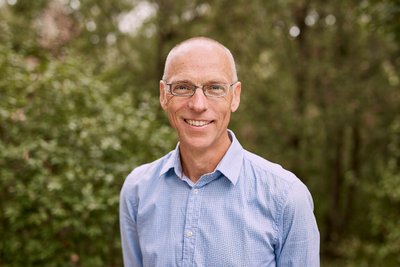What’s your purpose? Moving beyond the ‘Why?’
Nov 23, 2021 - updated Jan 18, 2022
5 mins


The common understanding is that your purpose can be found in the answers to questions starting with “Why?”.
“Why do you do this work?”
“Because I feel I am uniquely capable of doing it.”
“Because I feel I can contribute to…”
“Why do you want to move on?”
“Because there is not enough opportunity for professional growth.”
“Because I’m really excited about what the company I’m moving to stands for.”
“Because…”
There’s a lot of truth in this. And, I believe there’s more to it as you’ll read further on. But let’s first look at where the ‘Why?’ questions lead us.
There are three aspects that together define what is purposeful for us in work:
Our gifts, talents, and professional ambition.
Who or what we’re contributing to.
The people we work with.
We want our work to offer ways of expressing who we believe we are as people and to offer opportunities for further growth and development. Or, if we’re not clear about that yet, we want our work to be a way of exploring and learning what our gifts and talents are and what makes us flow. What do you love to do? What are you really good at? What are you (almost) always excited to learn more about?
For most of us, however, it’s not possible to find purpose in personal expression and growth alone. It’s hard to derive fulfillment from professional growth without contributing to a cause that is bigger than us. This cause can be what your company is working towards – which resonates with your values – or it might be your own cause that you can express within your company: for example, “Helping other people to grow.”
Last but not least, as most of us are social animals, we need to belong to a group of people, a “tribe” that feels like home. Amazing growth opportunities in a company where you don’t feel you connect with anyone will only keep you happy for a short time.
So in the end we’re looking for a balance between these three aspects of purpose. This, of course, takes place within the context of what is possible and what is needed in our world. The answers in this time of climate change are different from those, say, in the 1950s, just after the Second World War. Answers in London will be different from answers in Delhi. Answers for someone with relative financial freedom will be different from answers for someone struggling to make ends meet.
I like the way the poet David Whyte speaks about work as “a constant conversation” in The Three Marriages: Reimagining Work, Self, and Relationship: “It is the back-and-forth between what I think is me and what I think is not me; it is the edge between what the world needs of me and what I need of the world.”
Work is a continuous invitation, within your possibilities, to grow as an “actor” in the world, unfolding and sharpening your talents to offer your gifts to meaningful causes.
Let’s go a step deeper.
Whose “Why?” Are you pursuing? And why?
Your own, of course. But whose game are you really playing? Are you not also trying to live up to expectations?
What I’m trying to get at is making a separation between social norms and expectations and your authentic voice. Professional validation, being successful in the eyes of others, is something different than having a purpose. The first is an external reflection of how you are meeting the accepted norms. The second is an inner sense of being on your unique journey. It’s not that there’s anything wrong with being seen and rewarded, but it’s good to know where we’re being conditioned and what is truly authentic.
Our society and our companies have more or less explicit purposes and expectations and we are rewarded when we comply with these. Often people lose the wind in their sails because the external gratification of fitting in is not truly rewarding in the end. It is your own authentic “Why?” that will give you lasting gratification and reward.
I’ve regularly worked with people who became disillusioned in the organization they dreamt of working for – usually because of the internal workings of that organization. This can be a frustrating and energy-sucking situation. If you don’t have your own purpose and connect to the organization from that place, you’re giving that organization a lot of power, and you become too dependent on it. And, from an organization’s point of view, it’s much better for innovative capacity to have people who connect from their own drive than people who just want to join a tribe.
Courage to go beyond
It takes courage to make that separation between self and community, between what feels meaningful to you and what is regarded as successful. It’s a move outside of the herd and that’s scary.
Imagine our human society as a play that we act out on the stage of the earth. There are different plays staged in different parts of the world, but the dominant one is based on market capitalism and growth. It’s in that play that we’re educated and invited to choose a role and look for purpose. The most prevalent narrative is one of success and becoming successful. While success can have many faces, there is something common to all of them: success is perceived as outstanding within the play.
Yet something is alarming about this play and we all know it. While we’re busy acting, choosing our roles, finding our places, there are many people within the play suffering from the actions of their companions – and, what’s even more alarming, the play itself is severely harming the stage on which it is set: our mother earth.
It’s high time we changed the script, but most of our education and concepts of purpose and success are still firmly rooted within the language of this play. We might not believe the narrative anymore – most of us know the play is not working well – but we have a hard time finding other ways, other languages, which is not so strange. It’s hard to hear beyond the noise of the status quo when it’s so loud.
It is absolutely essential that we truly step out of the play; that we listen to our inner voices in a language different from the one we were educated to use.
In Nature and the Human Soul, Bill Plotkin, who is one of my teachers, says that we’re living in a patho-adolescent society. Most of our education and the way we talk about work is around fitting in, which is what adolescents want to do. Many cultures once had a moment, when their young people were in the process of becoming adults, in which they were sent out of the community, out of the play, into a journey, usually in nature, to listen deeply to their inner voice. This would help them find their calling. They would then come back to bring that gift to the community as a new inspiration that could never have been found within the language and norms of the community itself.
In the third article in this series, I will go deeper into ways to listen beyond the expectations of others to truly hear your own authentic voice. But next time, we’ll look at what to do when you feel you have lost purpose in the work you’re doing, or haven’t been able to find it yet, and how to make the most of that situation.
Here’s to the courage to ask yourself the question Mary Oliver framed so beautifully in her poem The Summer Day: “Tell me, what is it you plan to do with your one wild and precious life?”
Photo: Welcome to the Jungle
Follow Welcome to the Jungle on Facebook, LinkedIn, and Instagram, and subscribe to our newsletter to get our latest articles every day!

More inspiration: Martin Cadée
Transition Guide and Organizational Culture Alchemist

Beyond capitalism: How to find purpose in your personal myth
In the third article in our series about finding purpose, transition guide Martin Cadée tells us to embrace the world of symbols.
Jul 08, 2022

I’ve lost purpose in my work: what now?
Sometimes it’s worth taking a bit more time sitting with the discomfort, not yet knowing where to go next.
Jan 04, 2022
The newsletter that does the job
Want to keep up with the latest articles? Twice a week you can receive stories, jobs, and tips in your inbox.

Looking for your next job?
Over 200,000 people have found a job with Welcome to the Jungle.
Explore jobs